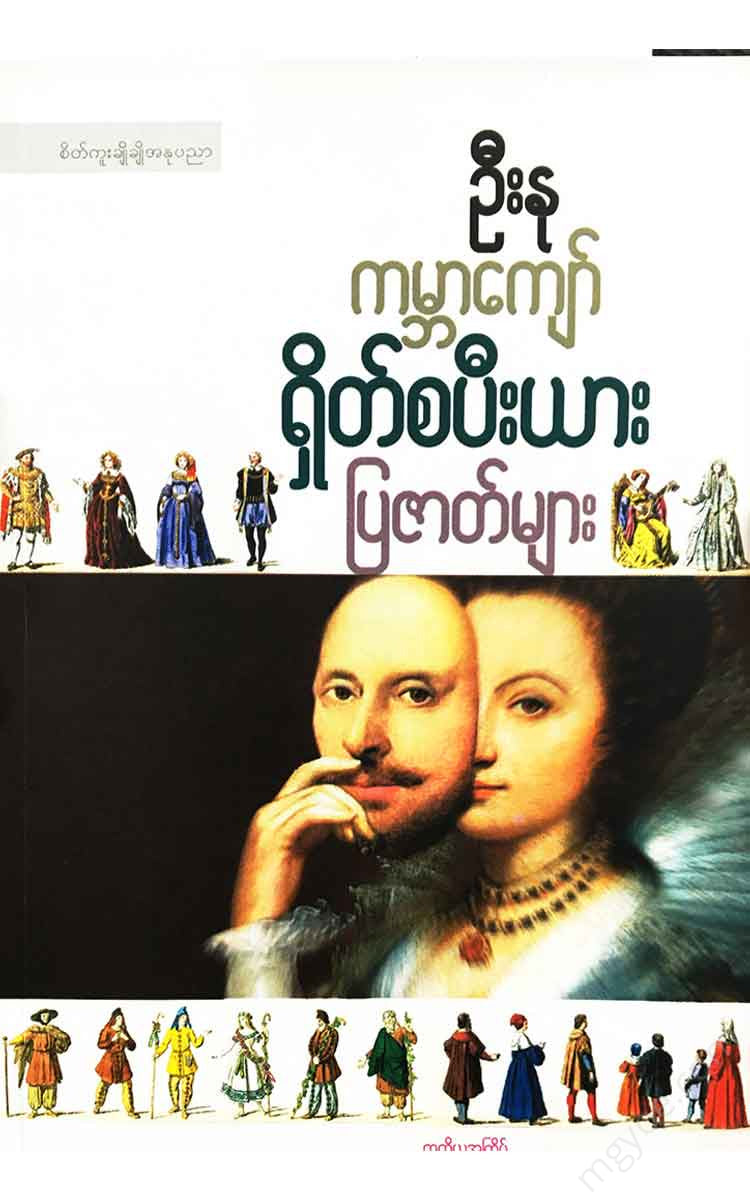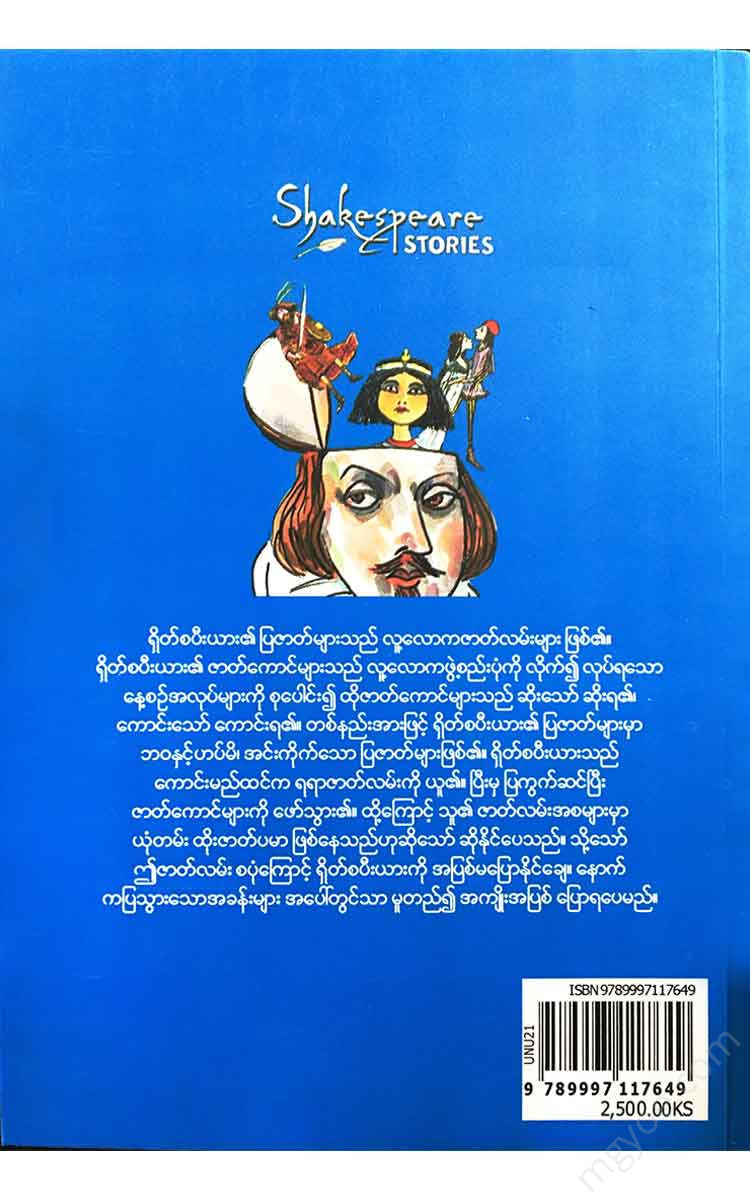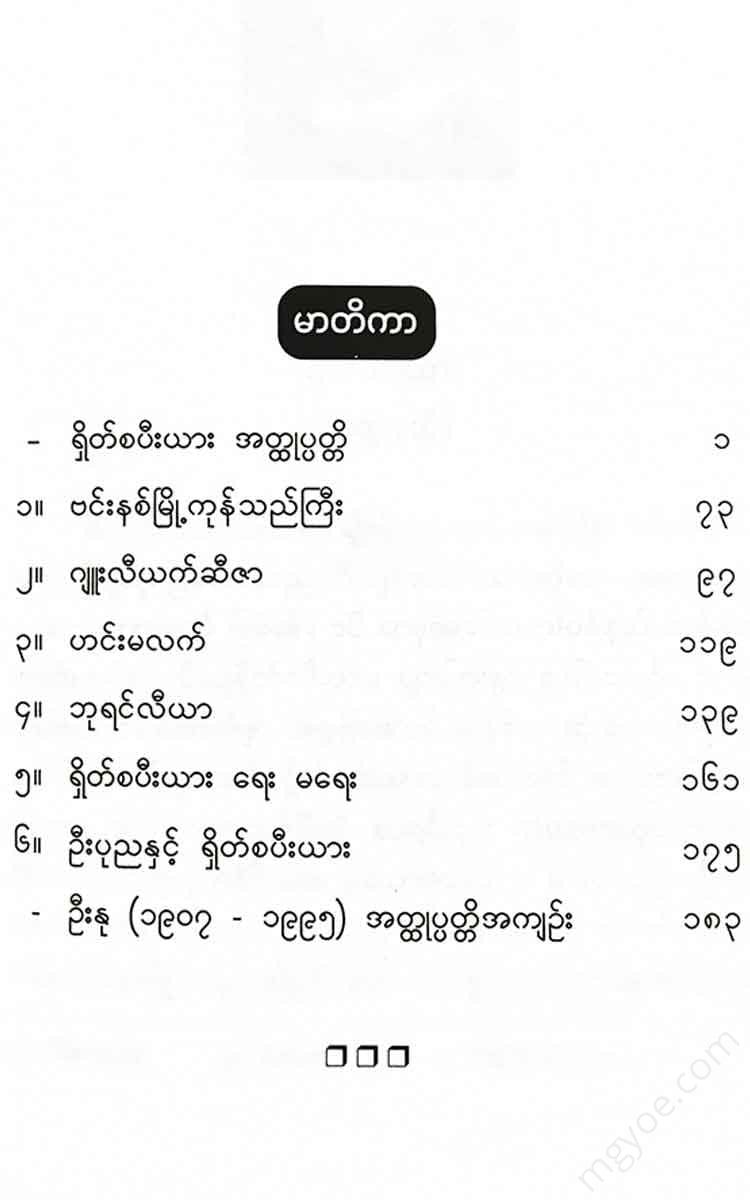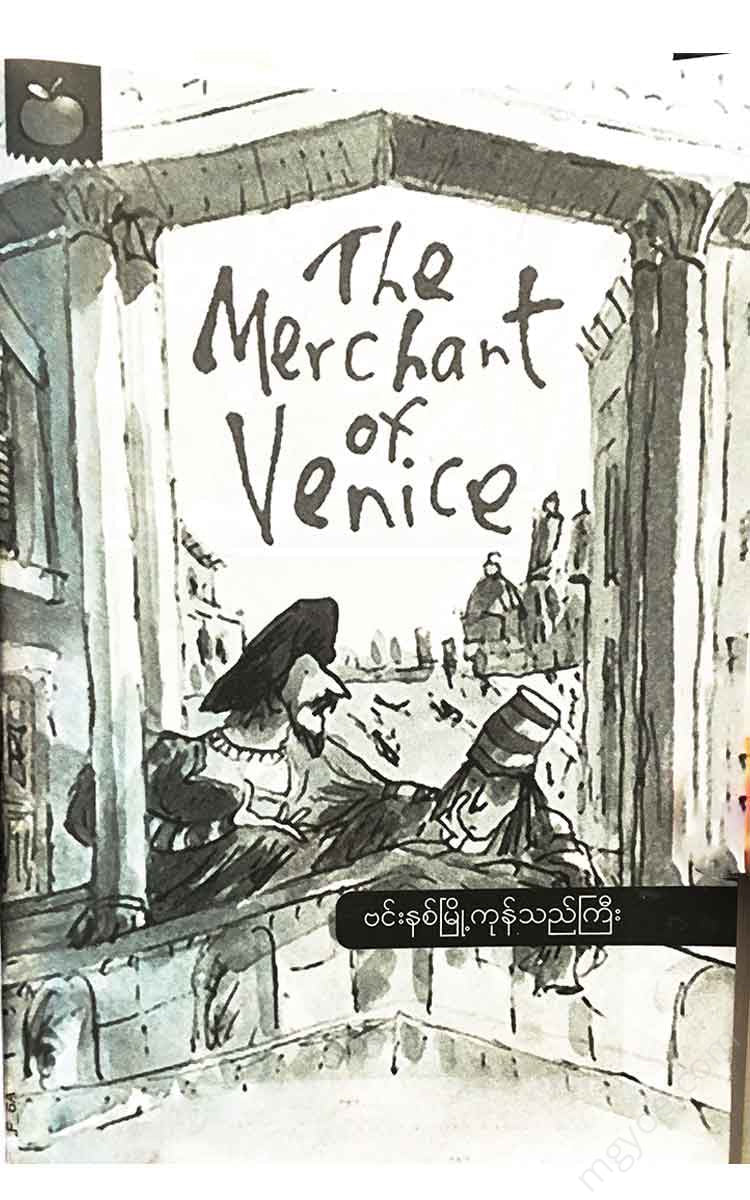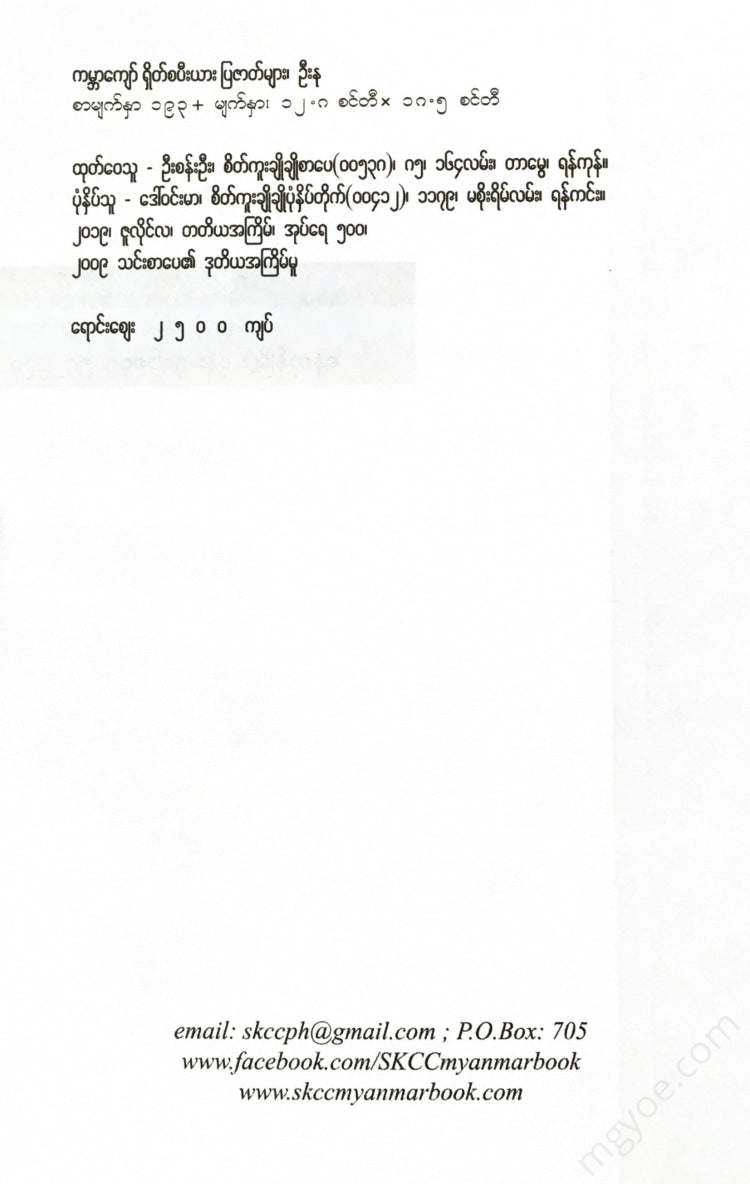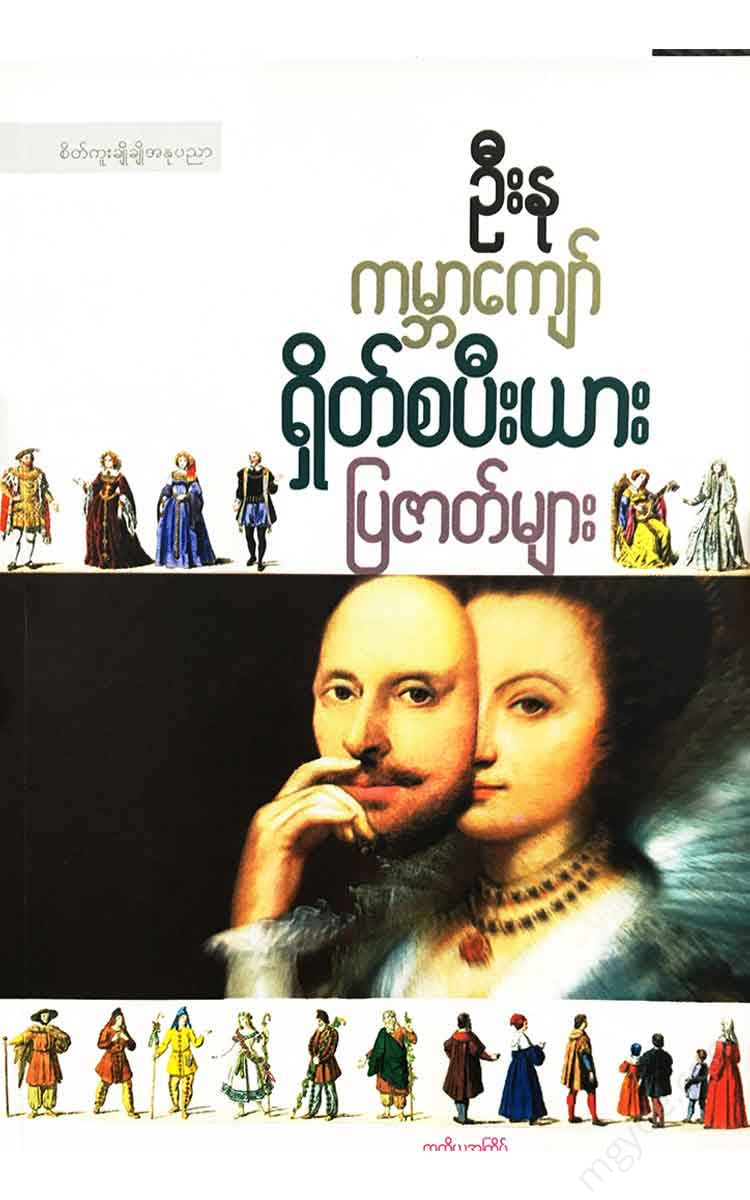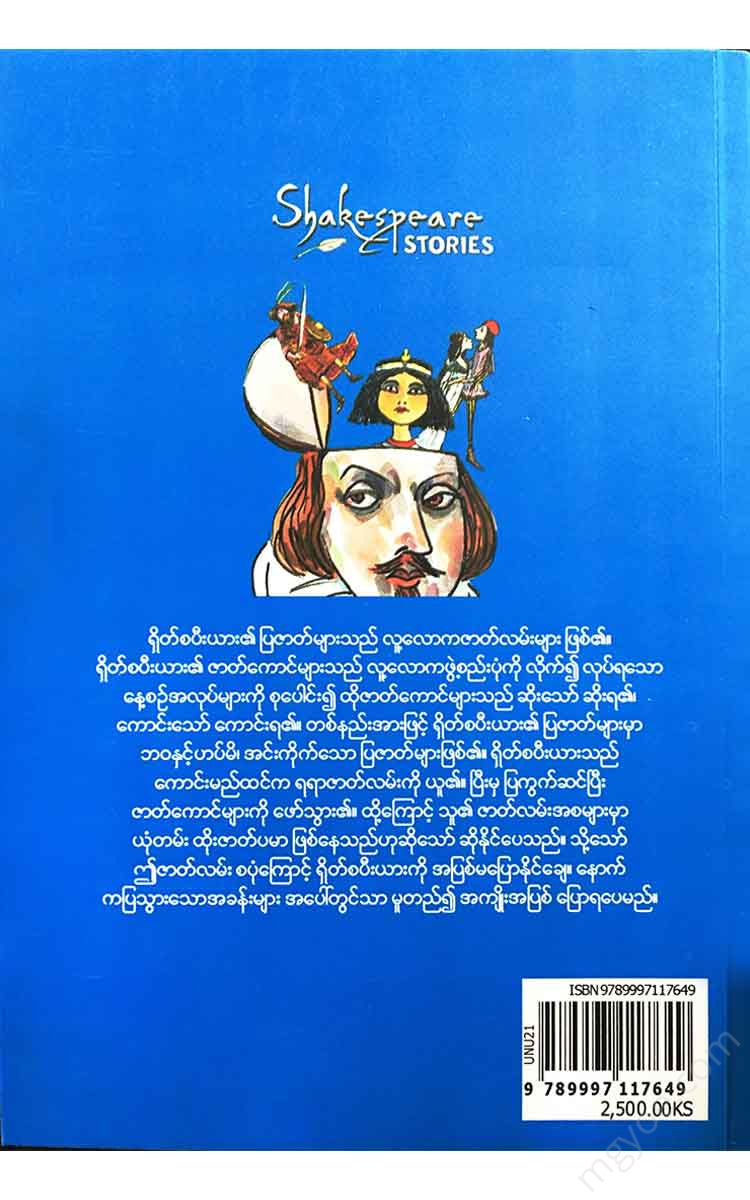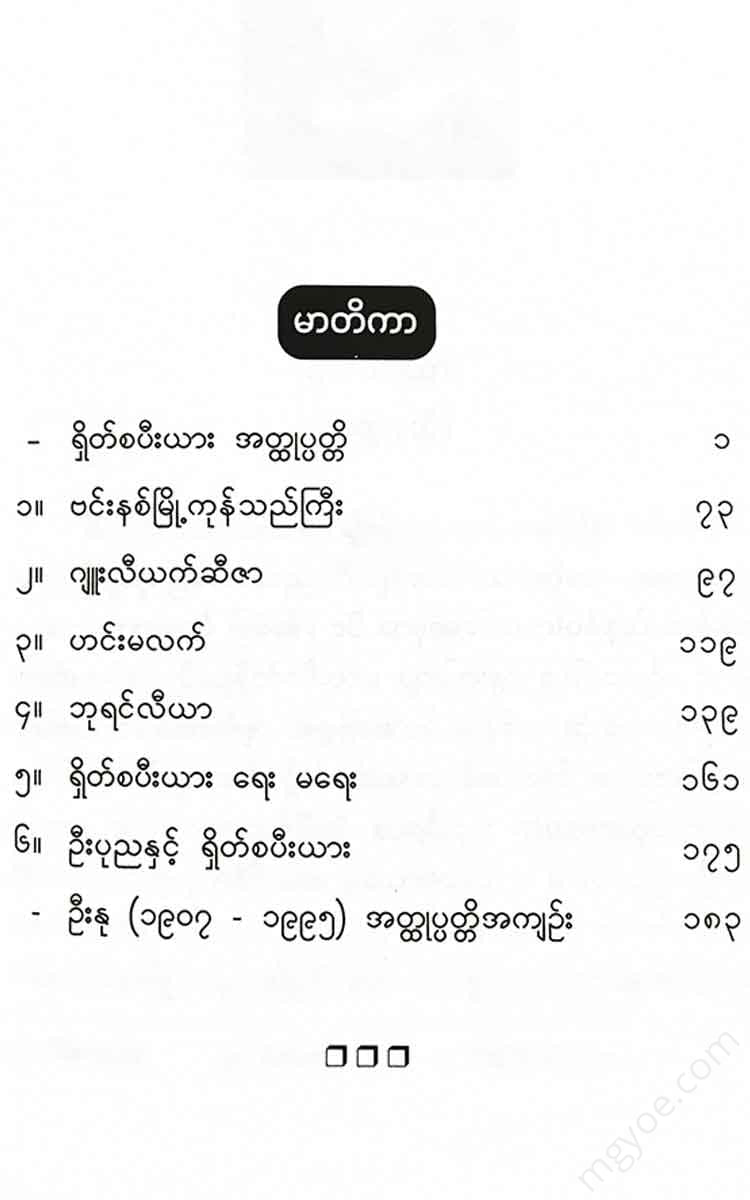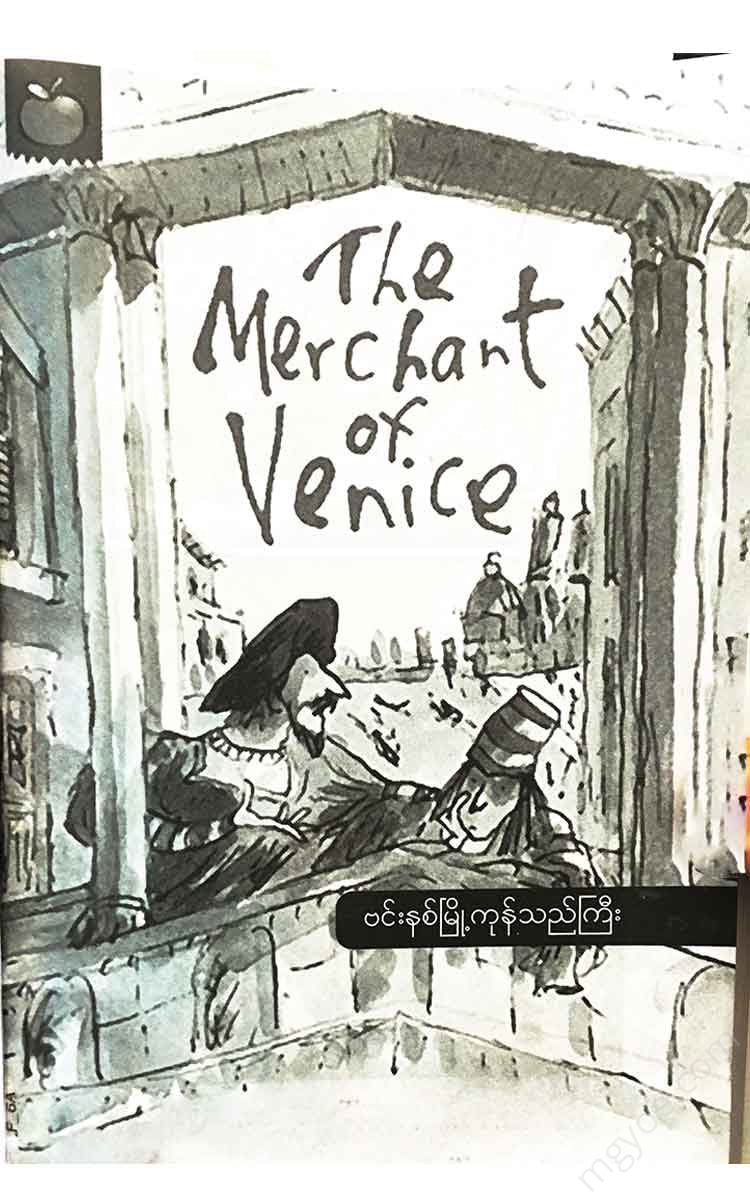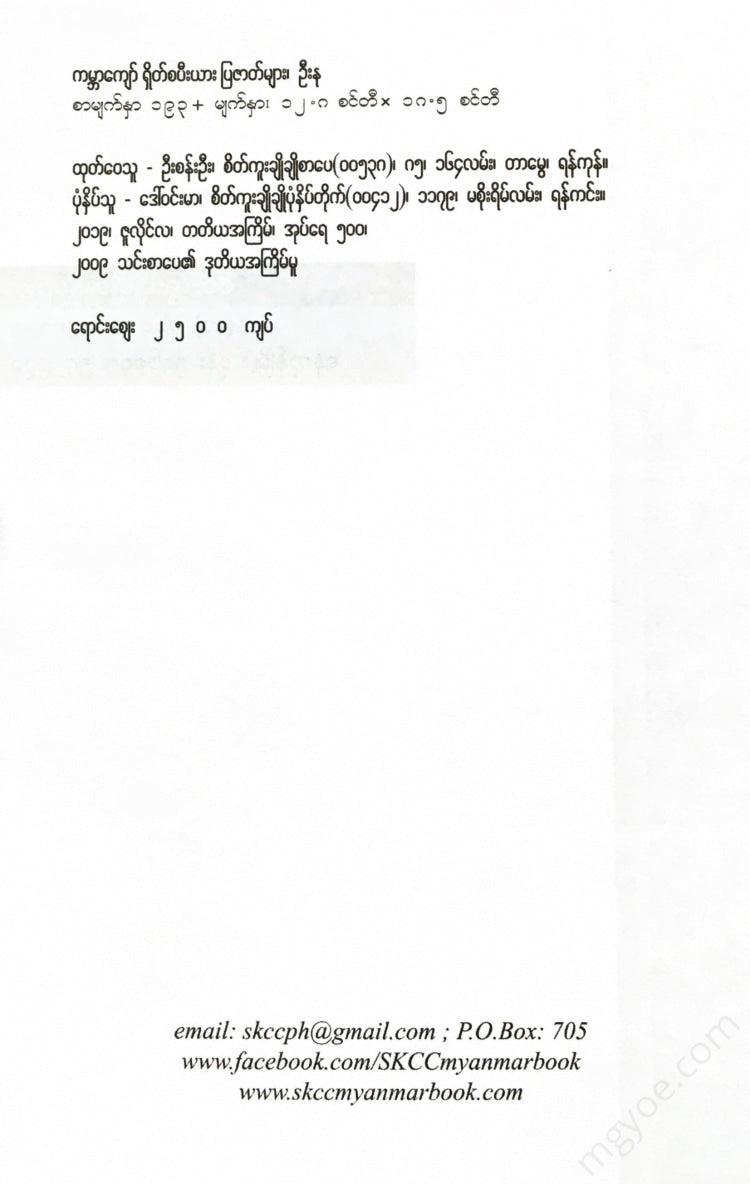စိတ်ကူးချိုချိုစာပေ
U Nu - World-famous Shakespeare plays
U Nu - World-famous Shakespeare plays
Couldn't load pickup availability
The Merchant of Venice
Introduction
If we were to divide the history of world theater into chapters and name them, the era of theater that Shakespeare wrote about would be called the “New Age” era of theater. New Age means that everything that is already in existence, whether it is a novel, a story, a philosophy, or a literary work, is reinterpreted with new ideas, new perspectives, and new events, and is organized in a new way (thinking and thinking). The reason why Shakespeare’s era of theater is called the New Age of Theater is because he transformed ancient romances into historical dramas.
Just as a weaver weaves beautiful fabrics from silk that has been prepared by others, Shakespeare turns the stories written by others into beautiful plays. In The Merchant of Venice, two plays are combined to create a plot. In The Merchant of Venice, the Jewish woman who borrows a pound of flesh as collateral is a play, and The Heiress and the Three Chests are two separate stories. Both of these stories date back to the late Neolithic and early Middle Ages. The story of Venice growing larger and larger is similar to that of Italy, The Florentine Sergio Vanni Re Epicoroni (1378) is included in the story. However, that story does not include the story of the daughter being stolen. Another story of a moneylender whose daughter is stolen is in the story of Antonio Mondello Re Zealotto (1580).
The story of the Three Chests is also similar to Richard Robinson's "The Sixty-Sixth Jester Romano Law." It is difficult to say that Shakespeare himself mixed the two stories into a play. Stephen Gorson's 1579 paper mentions that "there was a play called The Jew," which is similar to the plot of The Merchant of Venice. Some say that Shakespeare copied it from Christopher Malory's play The Jew of Malta. Others say that Anthony Monday's Zealot is included in the Frenchman Alexander Silvestri's Epitome of History. Others say that a song called "The Jew of Januta" has existed since the beginning of the world, etc., and have searched for the origin of The Merchant of Venice as if it were a chicken's egg.
But what is important to readers is not the story of The Merchant of Venice, but the flavor of The Merchant of Venice.
In The Merchant of Venice, Shakespeare wants to express the idea of vipaka. Vipaka is the result of good and bad karma. Good and bad karma are the good deeds done in the past, the good deeds done now, and the bad deeds done in the past, the bad deeds done now. Good and bad deeds are also good in the beginning, but if done too much, they become bad. In other words, Shakespeare means that if you do too much, you will get the same bad result (or vipaka).
For example, in commerce, if a person wants to make a profit and raises the price of a product, there will be no buyers and he will suffer a loss. If a person who wants to advance in his position goes to his superiors day and night in a hurry, and works hard and does not get a fair salary, he will be scolded by his superiors and the people, and he will also fall ill and be fired from his job, as is described in The Merchant of Venice.
Antonio is overconfident in his business, and is thus brought to justice. Antonio sends ships to various places to enrich himself rather than to enrich himself with his possessions. When the ships are wrecked, he is unable to pay the money he has borrowed by pledging a pound of his flesh, and is sued by the creditor, Shylo. This is the result of his overconfidence in his business and his excessive desire for wealth.
The Jewish creditor, Shiloh, also wanted to do as the contract said, and to do as the law said, so the contract itself caused trouble. The law itself caused trouble. Although he was promised that he would send him double the amount of money in the contract, Shiloh did not take the money, but said that he wanted to take only a pound of meat as the contract said. Therefore, when Antonio's lawyer said that he should take a pound of meat as the contract said, and not let the blood flow, and not more, Shiloh was in trouble. Faced with this difficulty, when he said that he would take only the money, he did not accept it because of his excessive talk during the contract, and not only did he not receive the money, but he was also charged with wanting to kill a person, and his property was confiscated. This is the suffering of over-reliance on the contract, which is called a contract.
Shakespeare introduces the problem of the three pots of gold, silver, and lead to understand people's character and ideas. There are three ways in which people make decisions. The first is a kind of fateful decision, like a lottery, in which one decides whether something is right or wrong. The second is a kind of decision that is not fateful, but a kind of mutual consideration and consideration. This kind of decision is a decision that is made by thinking carefully about cause and effect. In order to think carefully about cause and effect, one must be able to eliminate greed, anger, and ignorance from one's own nature. The three types of greed, anger, and ignorance cannot coexist with reasoning because they are the cause of suffering. Then, one needs to examine whether one has attachment in oneself. Attachment is like a fish underwater, which is difficult to see and recognize. Some obsessions are traditional obsessions, so they are not seen as obsessions. They are thought of as customs. Furthermore, we have to look for evidence from the environment to consider.
Thus, when one is free from greed, anger, attachment, and all other attachments, and when the evidence is complete, one can see that there is one side of the scale,
A problem to be decided is valuable, but the evidence to consider is scant. In such a problem, the best way to decide is to look at the characteristics.
The most beautiful, most cunning, and most valuable jewel in the Venetian merchant's collection. The one who chooses the true jewel among the three jewels will receive this jewel. If he does not choose, he will never have a wife again. Therefore, the jewel problem is a problem that can affect the fate of men for good or bad. It is the most important problem for men. It is also the most valuable. However, if we look for evidence and proof to decide the problem, we will find that the gold jewel, the silver jewel, and the copper jewel are on each of the jewels.
Whoever chooses me, people will get everything they need.
Choose me, and you will receive everything you deserve.
Choose me, white.
Only inscriptions are found.
With this three-line inscription, where can we judge between the infinite and the infinite? We cannot judge. We cannot live without judging. The matter of choosing the truth is very important. Therefore, we must judge by considering the three, and by judging by the characteristics.
The first person to be chosen was a prince, and his character was that there was no one in the world who was equal to him, and that he believed himself to be the best of the best. Therefore, he hated the material stone. Furthermore, he did not choose the casket out of pure love for the king. He chose it out of love for the people, because he loved everything they wanted. With this character, this spirit, he chose the golden casket, as the saying goes, “Like things, like medicines.” He had missed the most precious jewel (because of pride).
The second man was `Aragon. Although he did not have the blood of a great man, his status was higher than that of an ordinary citizen.
